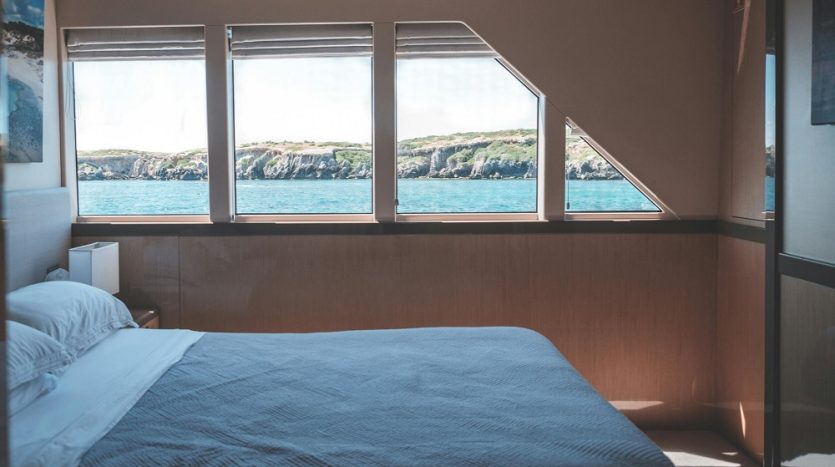From Seafront Studios to Suburban Villas: A British Citizen’s Guide to Buying Property in Limassol
Limassol’s skyline has grown taller and its suburbs keep edging outwards, yet the city still balances Mediterranean ease with motorways, marinas and a lively corporate sector. For many Britons a short holiday triggers thoughts of owning a home. Brexit altered the paperwork and prices have shifted, but securing the right address is still feasible once you understand the rules and the running costs.
Why Limassol keeps topping shortlists
Beyond reliable sunshine, Limassol offers steady employment, an active port, top-tier schools and flights to London most days. Coastal flats now command premium rates, notably between the old harbour and Agios Tychonas, while suburban villas stay cheaper than equivalents on the Costa del Sol.
Post-Brexit legal landscape
Since 2021 British buyers are classed as third-country nationals. You can usually hold one apartment, one detached house or land up to 4,014 m²; a second unit is possible if the Council of Ministers grants permission, a process handled by your lawyer after contract signing. The decision normally arrives within eight weeks. Title deeds cannot transfer until approval is on file, so build the wait into your schedule.
A quick look at stock on offer
Local agents habitually break the city into four broad zones:
- Historic Centre & Marina – restored townhouses and waterfront towers, ideal if you want cafés on the doorstep.
- Seafront East – high-rise blocks with concierge services, plus gated low-rise schemes inland of the coast road.
- Suburban West – detached villas around Ypsonas and Kolossi, popular with families who favour space over sea views.
- Hinterland Villages – stone cottages in Erimi or Parekklisia where prices dip once you move a few kilometres from the shoreline.
Scrolling through portals packed with Cyprus houses for sale can be dizzying; start by fixing a neighbourhood and budget range so you filter listings with purpose.
Headline figures and hidden extras
Advertised prices for new-build apartments close to the marina now sit between €4,500 and €8,000 per square metre, while three-bed villas in quiet suburbs still change hands from about €400,000. Those figures only tell half the story, because Cyprus levies a bundle of one-off charges at transfer. The Immovable Property Transfer Fee is 3 % on the first €85,000, 5 % on the next €85,000, and 8 % on the balance. Buyers who buy house in Cyprus directly from a developer pay VAT at 19 % instead of the fee, although a reduced 5 % rate applies to the first 200 m² if the dwelling will be your main home. Add stamp duty (up to 0.4 %), a modest land-registry levy, and legal fees in the region of 1 %.
Funding the purchase
Despite rate rises across Europe, Cypriot banks still lend up to 70 % of the purchase price to non-residents who can prove overseas income. Loans run to thirty years and usually carry a margin of 2–3 % above the European Central Bank base rate. Many British buyers instead refinance property at home or draw on sterling savings, then convert lump sums through specialist currency brokers to lock an exchange rate. If you plan to buy homes in cyprus with a euro mortgage, remember that the bank will insist on life insurance and an independent valuation, together adding a few hundred euros.
Step-by-step timeline
- Reservation – A small holding deposit (often €5,000) removes the listing from the market for two to four weeks while your lawyer checks title.
- Due diligence – The search covers planning permits, debts registered against the land, and whether separate title deeds exist or are still pending from the developer.
- Contract signing – You pay the balance of the agreed deposit (commonly 20–30 %) and the agreement is lodged at the Land Registry for specific performance.
- Council of Ministers application – Your representative files the paperwork together with a clean criminal-record certificate and financial reference.
- Completion – Once permission is issued and the seller has tax clearances, you settle the remaining price, the Land Registry issues new deeds, and utilities shift into your name.
Altogether, the process can wrap up in as little as eight weeks for resale units, although off-plan deals span the build period plus permit time.
Living, letting and tax
Limassol’s non-dom regime exempts foreigners from tax on most overseas income for seventeen years, and there is no inheritance tax. Rental income sourced in Cyprus is taxed at progressive rates after a 20 % allowance, while capital gains tax is 20 % on profit above a lifetime exemption of €17,086. Many owners treat their apartment as a holiday base, renting it out when not in town; occupancy hits 90 % in July and August and stays respectable through spring. If your eye is on Cyprus homes for sale as a lifestyle move, you might seek the Fast-Track Permanent Residency programme, which currently sets a minimum real-estate spend of €300,000 plus VAT and covers dependants under eighteen.
Working with professionals
A licensed estate agent’s fee falls on the seller, but budget for an independent solicitor, a chartered surveyor and perhaps a currency broker. Their combined cost rarely exceeds 3 % of the price but can spare you far bigger headaches, especially with an older house in cyprus for sale.
Practical pointers
- View at different times of day; traffic on the coast road can double journey times after 4 pm.
- Metered water costs less inland, so a villa with a garden may cost less to run than a penthouse plunge pool.
- Check communal charges; lifts and chiller units by the sea corrode faster than those a kilometer inland.
- If you spot houses for sale Cyprus lacking final approval certificates, insist the vendor secures them before transfer.
Handle the formalities, run the numbers honestly, and draw on good local advice, and Limassol can deliver a property that serves both lifestyle and long-term return.

